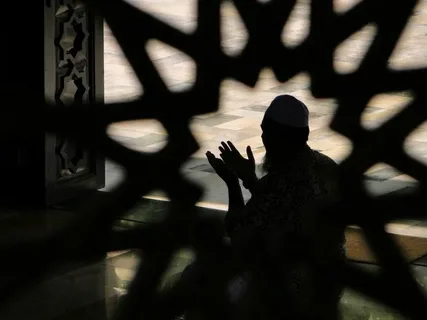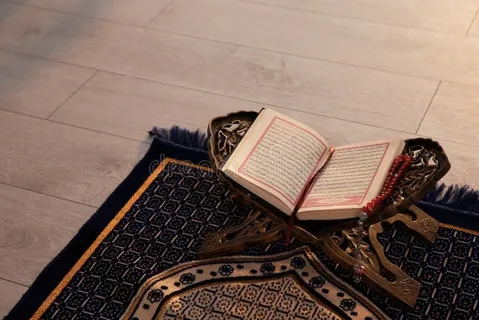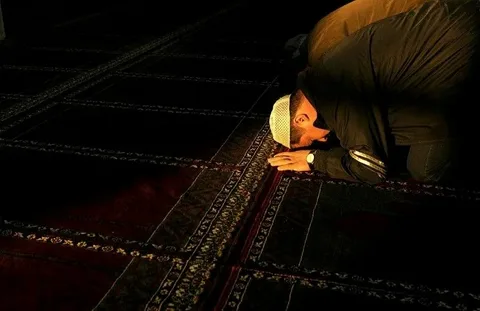Islam is a religion that emphasizes compassion, mercy, and kindness. Among the most essential and profound concepts in Islam is the concept of Rahma. The term “Rahma” appears frequently in the Qur’an and the teachings of the Prophet Muhammad (peace be upon him), as it encapsulates God’s mercy and compassion toward His creation. But what is the meaning of Rahma in Islam? In this article on Arabian Tongue website, we will explore the significance, importance, and application of Rahma in the context of Islam.
What is Rahma in Islam?

Rahma in Islam refers to the mercy, compassion, and kindness that Allah, the Creator, bestows upon His creation. The word “Rahma” is derived from the Arabic root word “R-H-M,” which signifies kindness, mercy, and the quality of being gentle and caring. This quality of mercy is not just a divine attribute but is also something that Muslims are encouraged to exhibit in their daily lives towards others.
When we talk about Rahma in Islam meaning, we refer to both the mercy of Allah towards His creation and the encouragement for Muslims to embody this mercy in their actions and dealings with others. Rahma is what allows Allah to forgive the sins of His servants, provide sustenance, and guide humanity to the right path. It is central to the Islamic understanding of how Allah relates to the world, and it is a critical aspect of a Muslim’s relationship with their Lord and fellow beings.
The Significance of Rahma in Islam
Rahma in Islam holds immense significance because it is a manifestation of Allah’s nature. In the Qur’an, Allah is described as being “Ar-Rahman” (The Most Merciful) and “Ar-Rahim” (The Most Compassionate). These names highlight the unparalleled mercy that Allah shows to His creation. Allah’s mercy is limitless, and it encompasses everything in existence. This mercy is shown through the creation of the universe, the sending of Prophets, the Qur’an, and the countless blessings that people receive daily.
In fact, the very first verse of the Qur’an, known as Surah Al-Fatiha (The Opening), is a prayer that invokes Allah’s mercy. The verse reads: “In the name of Allah, the Most Merciful, the Most Compassionate.” This phrase, which is recited by Muslims before every chapter of the Qur’an and in their daily prayers, emphasizes the centrality of Rahma in Islam. It is a reminder that all of life’s challenges, struggles, and hardships are alleviated through Allah’s mercy.
The Meaning of Rahma in the Life of a Muslim
This hadith reveals that mercy is a reciprocal act. By showing mercy to others, Muslims will experience Allah’s mercy in return. The Prophet Muhammad (PBUH) was known for his great compassion and kindness. His actions and teachings reflect the importance of showing Rahma not only to fellow Muslims but also to non-Muslims, animals, and the environment. The concept of Rahma in Islam teaches Muslims to be kind-hearted, forgiving, and to avoid harshness in their dealings with others.
Rahma in Islam and the Qur’an

The Qur’an is replete with references to Rahma. Allah mentions His mercy in numerous verses. One of the most well-known verses is:
“And your Lord is the Forgiving, full of mercy.”
(Qur’an, Surah Al-Kahf 18:58)
This verse reflects Allah’s vast mercy and readiness to forgive His servants. It is a reminder that no matter how grave a person’s sins may be, they can always seek Allah’s forgiveness through sincere repentance.
Another key verse is:
“And We have not sent you, [O Muhammad], except as a mercy to the worlds.”
(Qur’an, Surah Al-Anbiya 21:107)
In this verse, Allah emphasizes the role of Prophet Muhammad (PBUH) as a mercy to the entire creation. His mission was not just to deliver the message of Islam but also to embody and spread mercy to humanity. His life serves as an ideal example of how to act with kindness, compassion, and justice.
Rahma in Islam: A Compassionate Relationship with Allah
Additionally, the concept of Rahma emphasizes that Allah is not just just but also kind-hearted and gentle. His judgment, while firm, is tempered by His mercy. This means that even when a person falls short in their duties or sins, they can still hope for Allah’s mercy, as His mercy precedes His wrath. The combination of justice and mercy in Allah’s dealings with humanity is one of the cornerstones of Islamic theology.
Rahma in Islam and Personal Conduct
In Islam, the principle of Rahma is also applied in a Muslim’s everyday conduct. Muslims are expected to embody mercy in every aspect of their lives—from their relationship with their family and community to their professional and social interactions. Rahma in Islam is about kindness, forgiveness, and showing understanding. It is about not holding grudges and letting go of bitterness.
The Prophet Muhammad (PBUH) set an example of this behavior. Despite the harsh treatment he received from his enemies, he always chose to forgive and respond with mercy. The concept of Rahma extends even to the treatment of animals and the environment, with the Prophet urging Muslims to be kind and merciful toward animals and to protect the earth and its resources.
FAQs
What is Rahma in Islam?
Rahma in Islam refers to Allah’s mercy, compassion, and kindness toward His creation. It also refers to the mercy that Muslims are encouraged to show toward others, in imitation of Allah’s boundless mercy.
What does Rahma in Islam mean?
Rahma in Islam meaning refers to Allah’s attribute of mercy and the kindness He shows to all living beings. It also encourages Muslims to practice mercy in their own lives, treating others with gentleness and forgiveness.
How is Rahma applied in the daily life of a Muslim?
Rahma is applied by being merciful, forgiving, and compassionate in every aspect of life—toward family members, friends, strangers, animals, and the environment. A Muslim is encouraged to reflect Allah's mercy in all actions.
Why is Rahma important in Islam?
Rahma is a central concept in Islam because it defines Allah's relationship with His creation. It also serves as a model for how Muslims should interact with others, fostering kindness and peace in the community.
Can Rahma be shown to non-Muslims?
Yes, Rahma in Islam extends beyond fellow Muslims. Muslims are encouraged to show kindness and compassion to all of humanity, regardless of religious background, as an expression of Allah's mercy for all creation.
Conclusion
In conclusion, Rahma in Islam is a powerful and encompassing concept that represents mercy, compassion, and kindness. It signifies Allah’s boundless mercy toward His creation, which Muslims are encouraged to reflect in their actions toward others. Whether through personal conduct, relationships, or social interactions, Rahma is the guiding principle that fosters peace, harmony, and understanding. By embodying this trait, Muslims not only draw closer to Allah but also contribute to a more compassionate and just world.
The concept of Rahma in Islam is a reminder that we, as human beings, should always seek to show kindness and forgiveness, as this will lead to Allah’s mercy upon us. Ultimately, Rahma teaches us that mercy is more powerful than wrath, and that the key to spiritual and social well-being is compassion.


